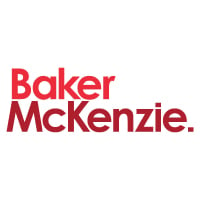

Intellectual property and food law manager | Danone de Mexico



Iracema Aldana
Intellectual property and food law manager | Danone de Mexico
How do you approach managing legal aspects during periods of instability or crises, and how does your legal strategy align with the broader business strategy to ensure the organisation’s resilience?
My legal strategy is always centered on minimizing legal and reputational risk, while keeping business objectives at the forefront, especially during periods of crisis. I really believe the legal function must act as a strategic partner, not a barrier. Our role is to protect the business assets while navigating side by side with the commercial decisions. We must adapt, design protective frameworks, and create legal strategies to mitigate critical risks.
I see the legal team as a proactive business partner. Our mission is not only to defend, but to prevent, anticipate, and propose new ways of doing business within the legal framework. This mindset has been essential for me and my team to ensure resilience, long-term value creation, and to build relationships based on trust. This openness and collaborative spirit have enabled us to align our legal strategy with business needs, creating solutions that protect the company while improving innovation and growth.
In my personal scope, I work closely with marketing and innovation teams, which requires a deep understanding of the business strategy. Many of my legal decisions have a direct impact on marketing strategies, so I’ve learned to balance what the legal framework allows with what the company needs to achieve. It’s not always easy, but I’ve developed a collaborative approach: actively listening to stakeholders, understanding their needs, being flexible and reaching agreements that protect the business while enabling progress.
What are the major cases or transactions you have been involved in recently?
Recently, Mexico has faced significant regulatory changes in the food and non-alcoholic beverages (NABs) industry, particularly in labeling standards (NOM-051), health advertising regulation, and in the rules governing products sold in schools. These regulatory changes have significantly impacted the way food and beverage companies (with products bearing black stamps mainly) conduct business in Mexico
My team and I always try to respond with agility, developing creative legal solutions to ensure a smooth transition and identifying opportunities within the new restrictions. For example, in the restrictions on the products sold in the schools, we helped marketing to create opportunities for products like Danonino, which does not have black stamps and is fortified with calcium and Vitamin D. These legal changes push companies to quickly adapt their commercial and legal strategies to not lose market presence and engagement with the consumer
Additionally, I led the legal strategy of two major joint ventures in Mexico: Quaker and Mondelez, which involved license agreements for two of our brands: Danone and Danmix. These transactions were complex, not only from a legal perspective but also due to supply chain considerations that required close coordination with planning teams. Both deals represented strategic moves into new categories: oats and biscuits, where Danone had no prior experience. The legal and commercial frameworks had to be meticulously crafted to support long-term partnerships and successful product launches. After months of negotiation, both associations were finalized and successfully launched, marking a significant expansion for the company in these two new categories.
What measures has your company taken to embed sustainability practices into its core business operations, and how does the role of the general counsel contribute to driving and ensuring sustainable practices within the company?
At Danone, sustainability is embedded in our DNA, and it is one of the three main goals of our Impact Journey 2030. But it’s not just a goal; it is now one of our principles across our operations. A reflection of this is, for example, that we have implemented initiatives to reduce single-use plastics in our CBUs in Mexico (mainly Dairy and Waters), using recyclable materials and collaborating with external partners to improve recyclability across the industry. Our ambition is to increase the use of recyclable plastic in all our products.
Another key project is reducing our environmental footprint. We aim to decrease our CO₂ emissions by 36% and we have already reduced the water consumption by 30% per ton over the past five years. And we also support regenerative agriculture and circular economy initiatives, reinforcing our commitment to the environment and society.
As Head of the Food Law team, I play a strategic role in enabling these efforts. My team supports the Sustainability teams in structuring agreements with all the NGOs and the industry partners we work with to implement these projects, for example, ECOCE or WWF. We also work closely with Communication and Marketing to ensure that sustainability messages are communicated transparently and responsibly, avoiding greenwashing, which is a risk we take very seriously as a company, even in the absence of local specific regulation regarding “Green Claims”.
Which legal tech organisations or products are helping you in your role?
Technology is evolving rapidly, and legal teams must adapt just as quickly. At Danone, we recognize that without the proper use of legal technology, we will always be one step behind our stakeholders, when in fact, our role is to stay one step ahead, anticipating risks and enabling our stakeholders to achieve their goals.
That’s why we’ve started implementing AI-tailored tools for Food Law tasks. We’re developing a custom platform that provides fast and reliable answers to Food Law and IP-related questions, using Danone’s internal data. This allows us to prevent legal risks before, ensuring agility and assertiveness.
By using our own data in these initiatives, we reduce the risk of bias often found in the general use of AI tools and ensure that the insights we receive are relevant, accurate, and aligned with our business context and rules. These platforms are designed to reflect Danone’s unique legal landscape, giving us a competitive advantage in two aspects: speed and precision.
Of course, we are aware of the risks associated with AI, and we approach its implementation with caution and responsibility. But when legal technology is developed with the right safeguards and a deep understanding of the business, it becomes a powerful tool for the business. We as lawyers must understand that the use of technology is no longer optional, but it is essential to remain proactive, strategic, and aligned with business strategies and velocity.